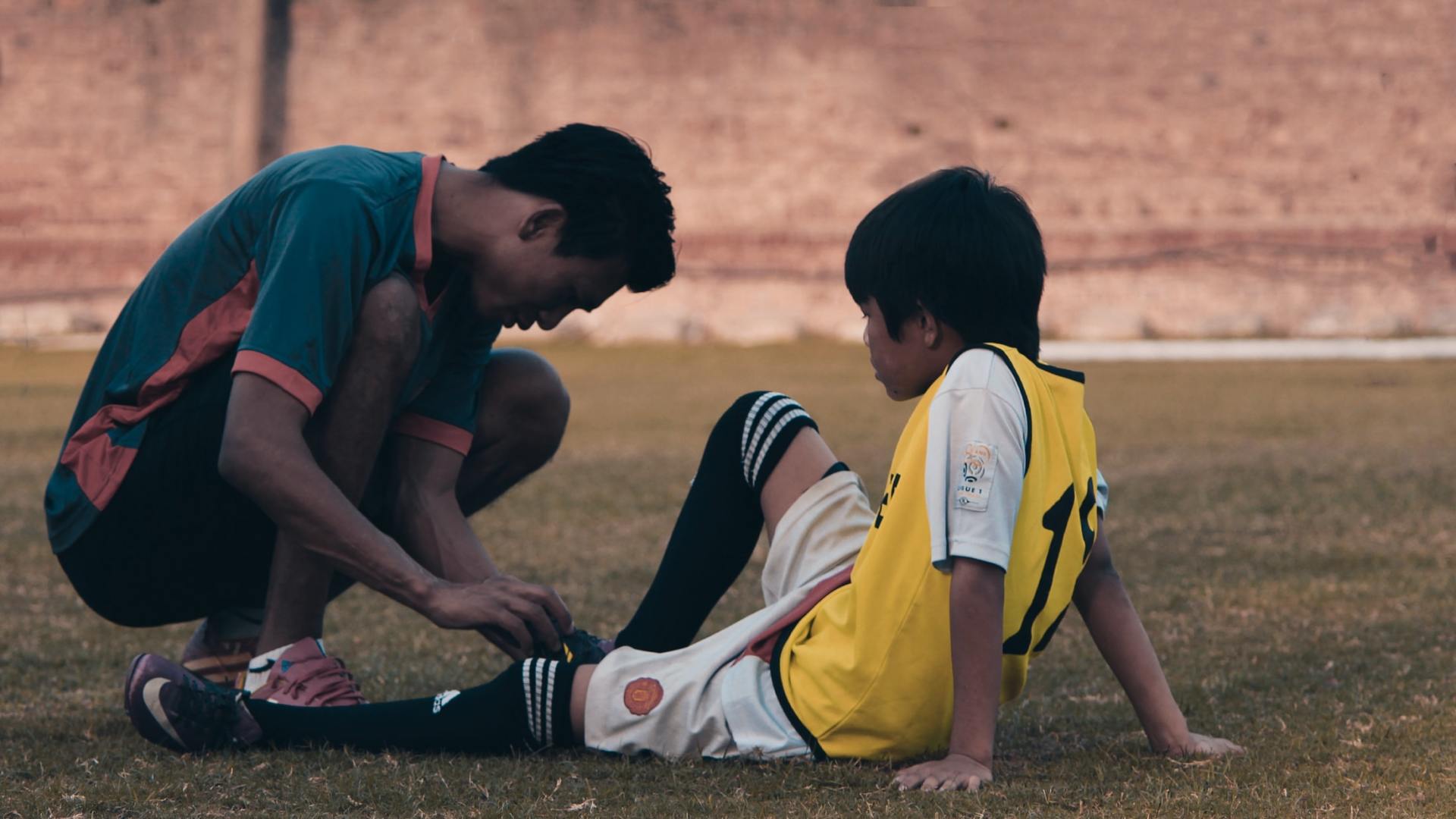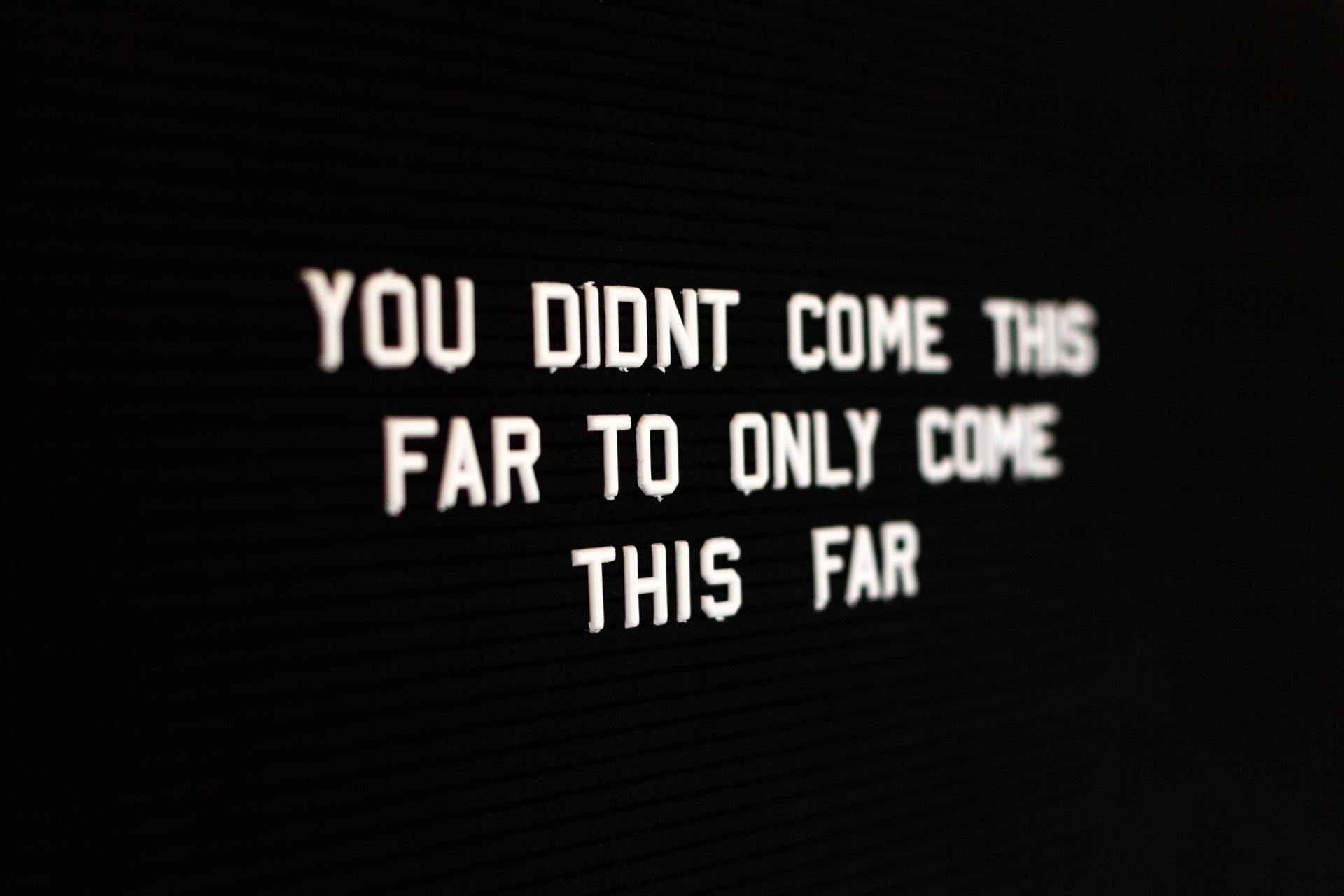
News

11 Nov, 2020
One of the most common mistakes I deal with when it comes to field based athletes is not having a specific routine on game day or even game week for that matter. Ultimately everything you do that week from food, sleep, training volume and recovery can have a detrimental effect on your 60 or 70 minutes to shine. For me doing the simple things well will lead to positive outcomes. Below are some of the habits I built into my preparation game week. Game week Schedule Monday - Recovery Tuesday - Pitch Wednesday- Gym Thursday - Pitch Friday - Recovery Saturday - Walk the dog Sunday - Game Preparation for me begins Monday. In my diary I outline my week as above and write down 3 things that I can control and prepare for in each session. I like to freshen up on Monday for my week by stretching, getting to the pool or sea and offload any fatigue or tiredness that might have carried over from the previous week. Tuesdays pitch is my last opportunity to cement the things I'm good at. It will be the toughest session that week so always go hard in everything you do. Don't start to try new things championship week. Be excellent at the basics and confident in your own capability. Wednesday gym - Throughout the season I have built a solid baseline of strength work in the gym. The gym for me is about building a foundation that supports my sport and contributes positively to my power, strength and speed on the field. Don't make the mistake of not doing one maintenance lifting session a week during the season. In contrast don’t try new exercises or decide to start lifting the week of a game if you haven't been before. My Wednesday's session for me consists of • 10minutes of steady state Watt bike • 5- 10 minutes dynamic movements and mobility • 20 minutes strength and power • sets and reps vary from 3 x 3-5 • 1 lower limb compound lift / superset with box jumps • 1 upper limb push / superset with med ball throws/pushes • 1 upper limb pull / Banded dead bugs Thursday Pitch - Is about enjoying yourself and hoping you have done enough to start. Even though Thursdays sessions will tend to be lighter, it's important that you're exposing your body to small amounts of high speed running meters which will act as a protective mechanism when you are exposed to it on game day. Fridays Recovery - Unless you're in the team bubble it can be energy sapping, chatting with people wondering who's playing, will ye win and all the uncontrollable topics that we can't control!!! I like to get to the sea for 10 -15 minutes in the water with other teammates who enjoy each other's company and know you have no interest in talking about the game. Saturday - Saturday can be a long day to pass. Whilst you want to reserve your energy it's important to get some sort of movement in like walking the dog, mobility work or something you enjoy. Get the gear packed and ready so there are no hiccups!!!! Sunday Game 4pm - With a 4pm game it's important to get an early start to the day so that you can continue with your fueling and hydration for the game. Fueling and hydration starts 48 hours prior to the game so that I'm not cramming food or have the feeling of discomfort because of being too full. It's also important to note that the below works for me and is specific to me so don’t worry if you struggle on game day to eat because of nerves. Fueling up the days in advance is the key if you struggle to eat. My game day looks like 8AM - Breakfast 1 - Porridge, banana and a pint of water with Mi-Wadi (easier to drink) - Hydration 10.30 - Breakfast 2 -scrambled eggs, beans, multi-seed bagels - Hydration 12.30 - Lunch - Pasta or rice / turkey steak /chicken and a small amount of mixed vegetables - Hydration 2.00 – Bagel / jam / banana and coffee Some other key aspects include sleep. Similar to your food you want to top up on sleep throughout the week by getting a consistent 7/8 hours per night. Remove any distractions from the room like mobile phones, iPads or leave the remote controls for the tv in the kitchen!!! If the opportunity allows, try to get 30-40 minute naps before training and arrive training fresh and ready to perform.

16 Oct, 2020
To say 2020 has been a shit show so far would be an understatement!!! Between zoom calls, zoom quizzes and zoom workouts I think we've all had our fill of it. It's interesting to listen to my clients speak about how zoom PT sessions have kept them accountable and engaged in their fitness journey. From a coaching perspective it certainly hasn't been ideal but what it has developed is my ability to communicate, watch and listen better to people. It's easy to stand next to someone and coach or demonstrate but from afar it can be a tedious process with a lot of focus required. With limited equipment, doorbells ringing and children looking for their Peppa Pig teddy it highlighted the humane side and the demands on people that I typically don't see in a gym environment. My online programs still allow people the same high quality of programming with full exercise demonstrations. Clients can train at a time that best fits into their daily routine. Prior to COVID below is the typical running of a 1:1 session. Regardless of who you are training with, it's always advisable to have a plan before you enter the gym so the session flows. Typically my sessions in a gym environment are roughly 1 hour in duration focusing on multifaceted areas of development with the sharpest of focus. No distractions and no phones. Depending on what stage of development you’re in, the session can go over slightly on time with longer rest periods maybe needed. I'm a big believer in high quality in a shorter period of time. So below is what a session might look like: -5 minutes to raise body temperature using cardio equipment of choice. This time also allows clients to refocus their attention back towards what the next hour might look like and also gives me an opportunity to get a feel for how my clients are feeling going into the session. Stress / lack of sleep, work commitments are just some of the red flags that dictates if the session needs modifying. -10 minutes of dynamic mobility focusing on specific areas of restrictive movement that the client might have. This in my opinion is the most neglected area. If we have poor functional movement then applying weight is going to lead to issues further down the line. I like to incorporate some muscle recruitment using mini bands especially with clients or athletes who have sedentary jobs. - 40 minutes - Depending on the client's goal this can be a strength session, metabolic conditioning session or a mixture of both. Everyone's goals vary but what's most important that when they leave there's a sense of achievement and progress. 5 minutes to cool down and chat though what the rest of their training week looks like and build in sustainable habits and routine moving forward. Going back a step and putting ourselves back in the lock down environment of home workouts the best coaches have the ability to adapt. Below I outline some simple body weight exercises that can be done from the comfort of your home. 3 rounds - 40 seconds on / 20 seconds rest Rest for 90 seconds after 1 full round Focus on quality and control 1-Bodyweight squats 2-Press up/Kneeling press ups 3-Walking lunges 4-RFE split squat (bottom step in the stairs usually works nicely) 5-Front planks 6-Side planks 7-Hip thrusters (shoulders on the couch) 8-Inch worms with a shoulder tap Comment and share if you find the above a help but hopefully lockdowns will well and truly be a thing of the past.

16 Oct, 2020
Throughout our lives there are very few who can hold their hand up and say they have not met some sort of adversity in their day to day training. Unfortunately on the journey we occasionally pick up injuries, knocks and niggles. Some are more serious than others. Throughout my sporting career I have had numerous injuries from soft tissue injuries (hamstring / calf / hip-flexor / quad), back issues, tendon issues and some sprains, dislocations and breaks. You might look at these injuries and think there's something drastically wrong with this guy!!!! For me I love playing and training at the highest level and challenging myself physically and mentally. Injury unfortunately at times is a part of that process whether it be bad luck/contact or over-loading issues but I'm happy to put myself through it to see the best version of myself come through the other side and do what I love. I’m sure you're in the same boat. Below I’m going to outline some thoughts and tips that have served me well when it comes to injuries. 1 - GOOGLE is not a self-diagnosing tool...Too often I hear of athletes or some clients self-diagnosing an issue they might have picked up throughout their day-to-day training. Our mind craves having clarity. Anything less than being assessed by a chartered physiotherapist is creating uncertainty or self-doubt. Find someone who works for you, who you trust and follow the process methodically so you can return to your sport or training in a safe manner. 2 - The THOUGHT PROCESS.....Getting injured absolutely sucks. Not only do you have a physical limitation when it comes to injury but a mental limitation too. Doubt creeps in and a build-up of frustration too. When will I be able to go back training? When I do will the injury hold up? Will I be as good as I was before the injury? These are all very normal thoughts to have. The key is to break each part of your rehab into stages. Set targets and goals with your physio or S&C coach weekly and chase after those goals with intent. 3 - A DIARY...I have used a diary since day one. They are a cheap under-utilised tool to continually track progress. Typically when injury occurs it can be down to a number of factors from over training volume, fatigue, poor sleep and day-to-day stress. Each day in your diary record some of the following so you can look back on the data and see what works best for you when your performances are at their best -Sleep duration. -Mood - (1 being no energy / flat, 10 feeling brilliant can't wait to train) -Weights lifted to show progress or drop offs in strength -RPE - Rate each session in terms of perceived exertion & difficulty 4 - The OBSTACLE is the path - I have never achieved anything in my life where it was an easy path to succeeding . Whether that be a new job, getting injured or hitting your training goals you will always meet obstacles. How we deal with them is the key. Climb over them, go around them but don't let them be the barrier to you achieving what you have set out for you. If you're a 10km runner, a Rugby player, GAA player or gym goer who's currently injured, look to other areas to develop yourself. Increase your strength by isolating the injured area, learn more about your sport and what's worked for others or tap into other areas of development. Above all else know that when it comes to injuries you will have good days and bad days throughout your return but there will be better days ahead. Stick to your recovery plan, be as positive as you've ever been and see it as an opportunity to develop and grow into a better athlete.

16 Oct, 2020
Unless you're David Goggins (who I’m a big fan of) are we always motivated to train? Motivation for me is a general willingness to do something and building new habits and behaviours into our day-to-day life. How many times have we questioned our reasoning for crawling out of bed at 5.30am or to go outside and train in the most challenging of weather conditions. I know I have but I still do it. Below I’ll outline some common characteristics and thoughts that can help with staying on track with achieving your fitness goals. Purpose - Everyone has a purpose or goal and if you don't I'd suggest finding one to get your momentum kicked off. Typically if you’re training sporadically it becomes easier to just say "I'll just stay in bed this morning". Put some purpose to your training by buying into something that you find challenging, achievable and fun. That can be trying to bring down your 5km time, getting stronger, fitter, faster. Purpose is everything. Routine - As boring as it might seem mapping out your weeks training days allows you to be physically and mentally ready for the challenge. Please don't give yourself the age-old excuse "I've had no time". With 168 hours in a week we can find time if we have that purpose to achieve. If you're training early in the morning have your gym gear ready and porridge ready to go. If you're like me in the morning you cherish every extra minute in bed you’ll be ready to go !!! Afternoon training sessions theoretically should be easier to get ready for but with modern day demands of work, family and commuting by the time evening comes you can be left feeling zapped and not wanting to leave that couch!!!!.With afternoon sessions try monitor your timing of meals so that even though you might have had a challenging day you have firstly refueled, reset and then ready to go. Similar to morning sessions bring your gear in the car or have it packed at home at the doorway. It's always harder to keep walking past it!!! Momentum - Once you've got started with your training plan it's important to capitalise on that momentum by progressively pushing yourself in each session. Now that you're in the groove of your training people will possibly start to notice a healthier, happier, more confident you. Don't shy away from those compliments but instead use them as fuel for the work you have put in so far. Sustainability - At the start of each year I set out some of the highest achievable goals possible for myself. Like climbing a mountain to get to the top there are certain stages along the way you must reach before reaching the peak. Similar to your own physical fitness targets if we set out to climb Everest in one go we will fail miserably, become disgruntled with the challenge and just quit. This is very similar with exercise. How many times have you launched into gym work or running from day one only to feel sore, tired and disillusioned with your fitness levels by the end of the week? Commit to a structured and sustainable 4-6 week period and work on progressively improving in key areas like strength, aerobic fitness or mobility. Rome wasn't built in day so stick with it. Self-Talk - Regardless if you’re a professional rugby player, amateur GAA player, a marathon runner, a rower, a gym-goer and the list goes on, we all have times of negative self-talk. It always interests me how our minds are wired to take the easy option in times of suffering or hardship during a session. “Don't get out of bed”, “don't finish the last run”, “don't finish the last set you have enough done”. When you’re struggling with your training and particularly when you’re on your own, declutter your mind. Refocus on controlling the breath and bring things back to right now. The previous run is irrelevant, the previous rep is irrelevant. What is relevant is right now so focus your attention and energy in finishing out each session with the highest of quality and remove that imposter who tells you that you can't!!! If any of the above points resonate with you be sure to leave your thoughts or comments or share.
